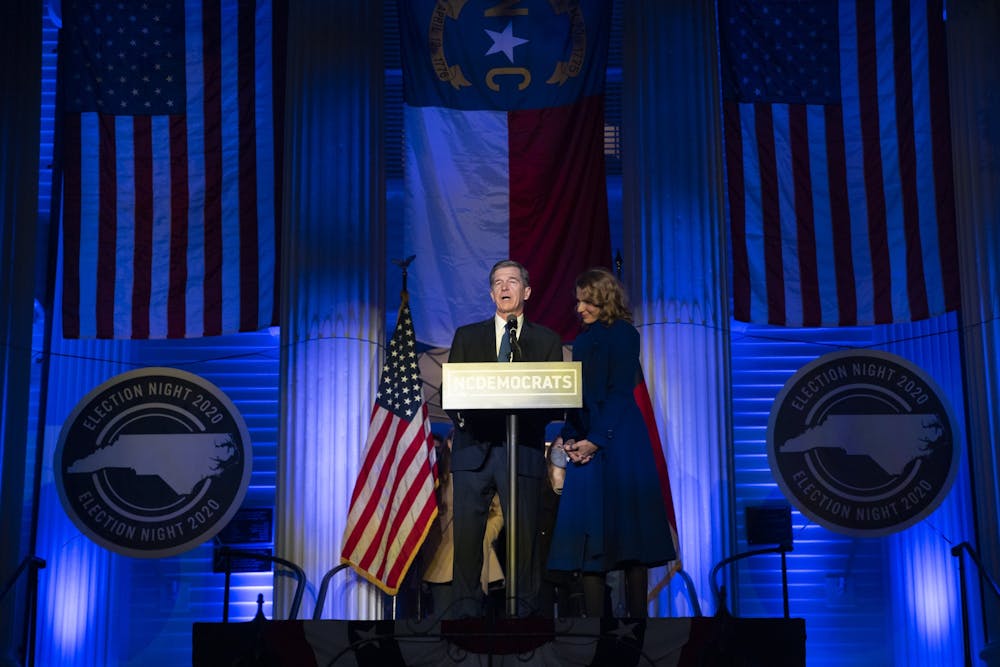Gov. Roy Cooper will serve another term after defeating Lt. Gov. Dan Forest in Tuesday’s election by a 4.4 point margin with 99 percent of precincts reporting, according to unofficial results.
Cooper said serving as governor has been the honor of his life at the North Carolina Democratic Party election night event in Raleigh. He said his time spent visiting communities across the state showed him that North Carolinians are resilient.
“We are creative,” Cooper said. “We are innovative, cooperative, inclusive and we do not give up easily. That’s true for the small business owners in the mountains, the factory workers in Piedmont and the farmers in the East.”
Forest delivered his concession speech and called for people to come together, saying that it is a time for healing in the state.
"It's time to get beyond political differences and ideological differences and sometimes even philosophical differences that separate us and join together as the good people of North Carolina," Forest said.
One of the key issues on the ballot for this election was Cooper’s handling of the COVID-19 pandemic. On March 17, Cooper issued an executive order that closed dine-in services at restaurants and expanded unemployment benefits. By March 30, there was a statewide stay-at-home order put into effect.
Opposition to Cooper’s pandemic response arose in the form of the Reopen N.C. movement, which was formed April 7 on Facebook. The group led protests and rallies highlighting the economic turmoil caused by the stay-at-home order. The state began a phased reopening on May 8.
During the sole gubernatorial debate, Forest voiced his criticisms about Cooper’s handling of the pandemic, saying that it harmed North Carolinians more than it helped. Forest argued mask mandates are not helpful in slowing the virus, and attributed the loss of businesses to Cooper's policies.
However, according to the final SurveyUSA poll, 57 percent of North Carolinians approved of Cooper’s response to the COVID-19 pandemic, compared to 32 percent who disapproved. When it came to the reopening of schools, 41 percent said North Carolina’s schools are reopening too fast, while 23 percent said the reopening is too slow and 22 percent said it is at just the right pace.




